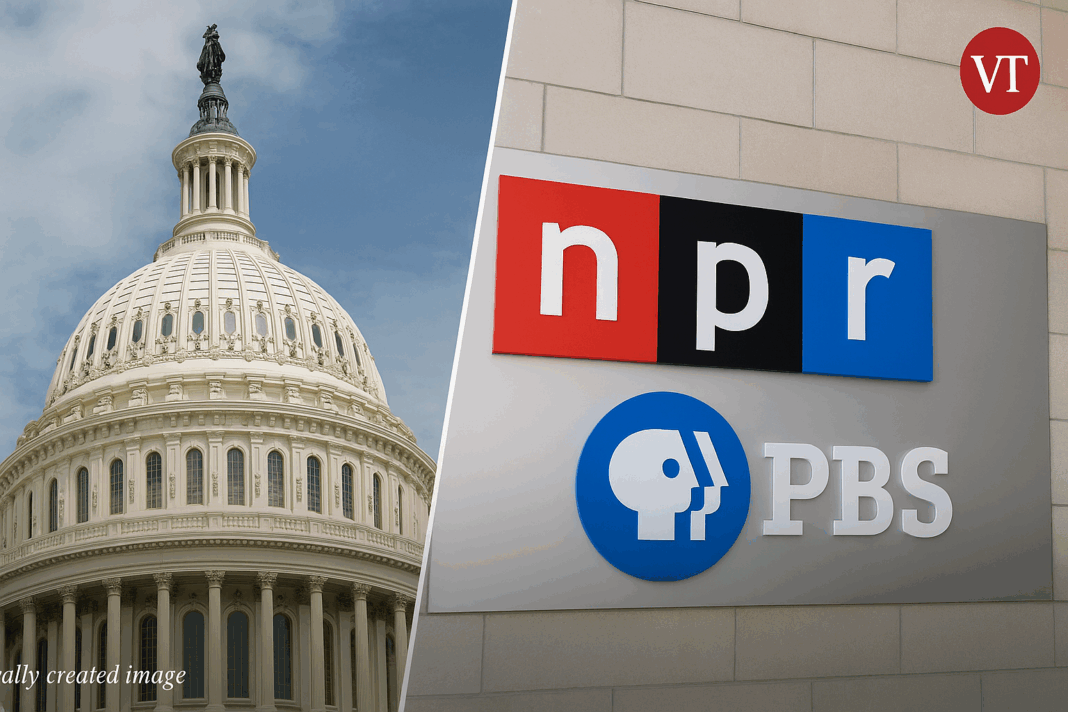• Senate passes rescission bill cutting $1.1 billion from public broadcasting
• NPR, PBS, and over 1,500 local stations face severe funding losses
• Vice President JD Vance cast tie-breaking votes
• Lawsuits filed over potential First Amendment violations
• Final House confirmation expected by July 18
A Narrow Victory in the Senate
In a tightly contested vote, the U.S. Senate on Wednesday, July 16, 2025, approved a $9 billion rescission package, including $1.1 billion in cuts to the Corporation for Public Broadcasting (CPB), which funds NPR, PBS, and over 1,500 local public radio and television stations nationwide. The bill passed 51–48, advancing President Donald Trump’s fiscal agenda through the Department of Government Efficiency (DOGE). According to NPR, the vote has intensified debate over the future of public media in underserved communities.
The bill required two tie-breaking votes by Vice President JD Vance during procedural hurdles on July 15. It saw unified opposition from Senate Democrats and two Republicans—Lisa Murkowski of Alaska and Mitch McConnell of Kentucky. Senator Susan Collins of Maine switched to support the bill after winning key exemptions for specific programs as reported by the New York Times. The bill, passed by the House in June, now awaits final confirmation by July 18 before the funds are released by the Office of Management and Budget (OMB).
Senate Majority Leader John Thune praised the bill as a necessary step toward “fiscal responsibility.” However, critics argue that eliminating CPB funding jeopardizes the ability of public media to deliver essential services, especially in rural and low-income communities.
Impact on Public Broadcasting
The $1.1 billion cut removes CPB funding for fiscal years 2026 and 2027. According to the NPR report, the funding—approximately $535 million annually—represents around 15% of PBS’s budget and supports nearly half of local stations nationwide.
The New York Times quoted Jack Jones, acting manager of KGVA 88.1 in Montana, who underscored the station’s importance in delivering emergency alerts and tribal council updates to the Aaniiih and Nakoda nations. “In rural areas, radio is often the only way people get critical information,” Jones said.
NPR CEO Katherine Maher warned that many local stations may shut down, leading to the emergence of “news deserts.” According to NPR, the resulting loss in public broadcasting infrastructure could disrupt educational programming and emergency communication.
In a public statement issued July 17, PBS President Paula Kerger said, “There is nothing more American than PBS… Despite today’s setback, we are determined to keep fighting.”
Political Context and Controversy
The bill reflects President Trump’s broader goal of reducing federal spending, largely following recommendations from the Department of Government Efficiency. Trump has frequently targeted NPR and PBS for perceived liberal bias and advocated for their defunding, according to NPR.
House Speaker Mike Johnson supported the cuts, claiming the growth of private media outlets diminishes the necessity for taxpayer-funded broadcasting. However, critics, including Senate Minority Leader Chuck Schumer, stressed the importance of public broadcasting in disaster-prone and underserved areas. The New York Times cited Schumer’s statement: “These cuts undermine lifesaving services, especially in rural communities hit hard by natural disasters.”
Negotiations and Exemptions
To secure passage, the Senate’s version of the bill excluded several high-profile programs. PEPFAR was removed from the package after bipartisan objections, reducing total cuts from $9.4 billion to $9 billion. Additionally, 28 public radio stations serving Native American communities in nine states were spared, thanks to negotiations led by Senator Mike Rounds as reported by NPR.
Senator Collins criticized OMB for a lack of transparency, noting lawmakers didn’t receive sufficient detail on which programs would be cut. The New York Times cited her warning that such opacity undermines informed policymaking.
Broader Implications
This move marks one of the rare uses of the Congressional Budget and Impoundment Control Act of 1974, which allows presidents to request cancellation of funds within 45 days of appropriation. According to The New York Times, the last serious attempt was under Trump in 2018, but it failed.
Both NPR and PBS have filed lawsuits, arguing that the defunding orders violate First Amendment protections on press freedom. NPR cited polling that shows 71% of Americans—including 58% of Republicans—support continued public broadcasting funding according to its own reporting.
Looking Ahead
With a July 18 deadline looming, the House’s final vote will determine whether the cuts are enacted. If approved, the rescission could reshape the media landscape, particularly in rural areas dependent on public broadcasting. The decision highlights the ongoing national debate over the government’s role in sustaining independent journalism amid growing budget constraints and political pressure.
Virginia Times – Your Trusted Media
A global media for the latest news, entertainment, music fashion, and more.














